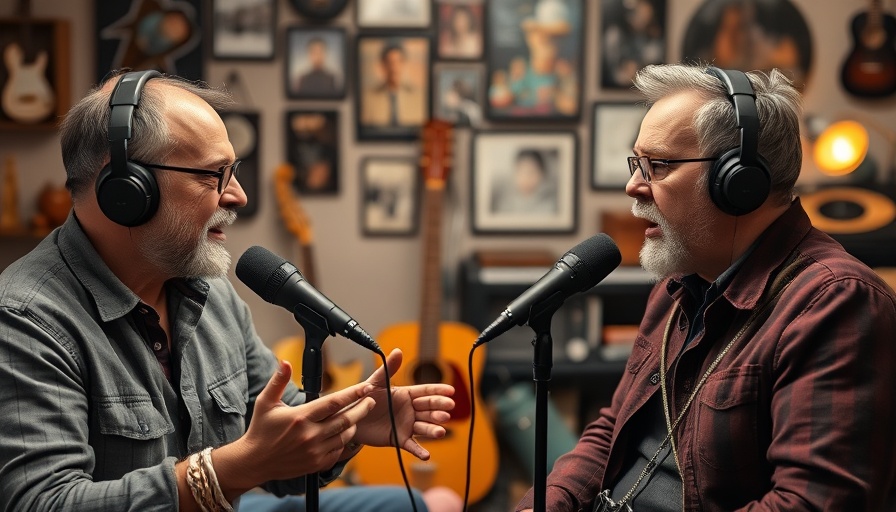
The Rise of Podcasting in American Politics
In recent years, podcasts have emerged as a transformative force in political communication, giving rise to new forms of engagement and discussion. This shift was notably marked when Marc Maron interviewed former President Barack Obama on his podcast, "WTF," in 2015, creating a template for informal, candid political dialogue. These long-form conversations contrast sharply with the brief, soundbite-driven interviews typical of traditional media. Maron's approach symbolized a shift towards a more relatable and accessible political discourse, which many now reflect upon with a sense of nostalgia and caution.
Why Podcasts Are Thriving
Today's podcasting landscape is characterized by an audience that traditional media struggles to capture, particularly younger demographics and politically disengaged citizens. As highlighted in a recent analysis by Cogent Strategies, the podcasting industry has exploded to encompass over 100 million monthly listeners in the U.S., representing a $2 billion market. Politicians are leveraging this platform to reach audiences through unfiltered narratives, humor, and intimate conversations, allowing them to convey authenticity and build trust.
Engagement Strategies: Building Connections
Podcasts cultivate deeper relationships between hosts and guests, crafting an environment ripe for trust. As noted by the European Center for Digital Action, these discussions often provide space for nuance and complexity, which is increasingly valuable in an age where quick social media clips dominate. Politicians can inform listeners in engaging ways that go beyond conventional news reports.
The Authentic Voice of Podcasts
Podcasting's informal style permits political figures to reveal more of their personal narratives. This authenticity resonates with listeners who are wary of polished political rhetoric. Efforts to connect with audiences are even more critical today, as Americans are increasingly skeptical of mainstream media. This skepticism fuels a shift toward platforms where people feel they are hearing unfiltered perspectives.
Future of Political Communication
The podcasting medium is not just a passing trend; it's shaping political communication's future. As traditional media outlets decline, finding effective ways to communicate remains crucial for politicians and advocates. The ability to tailor content specifically for targeted communities enhances engagement, creating calls to action that are more compelling than ever.
Tools for Political Advocacy
While producing a podcast takes effort and planning, the benefits can be significant. For politicians looking to impact the world, joining existing podcasts as a guest can be an effective strategy to tap into pre-established audiences. As noted in various sources, the ability to share stories in a relatable and engaging manner fosters community-driven narratives that are necessary in today’s political climate.
Conclusion: Why You Should Tune In
The evolving landscape of political communication is undeniably shaped by the podcasting phenomenon. For top wage earners in Philadelphia and beyond, understanding this medium will provide insights into how societal narratives are constructed and communicated. As the trust in traditional media wanes, consider tuning in to your favorite podcasts, engaging in questions, and being part of the conversation that is helping redefine political discourse. Stay informed, open-minded, and take action regarding issues that resonate with you.
 Add Row
Add Row  Add
Add 




Write A Comment